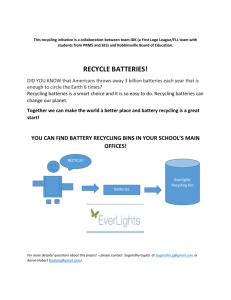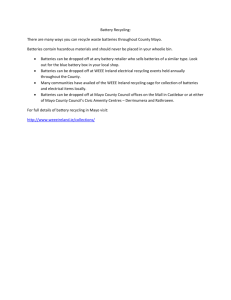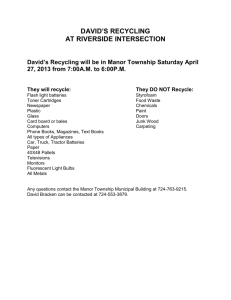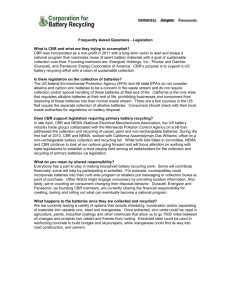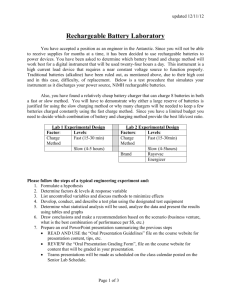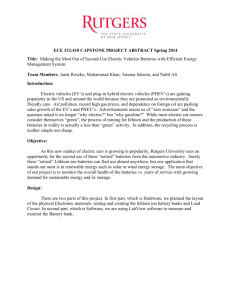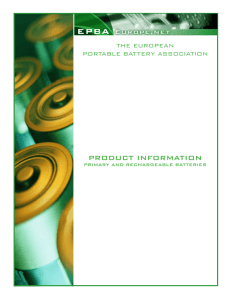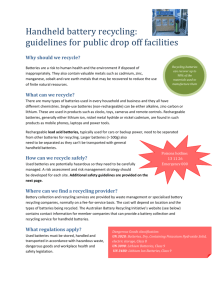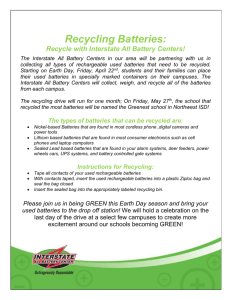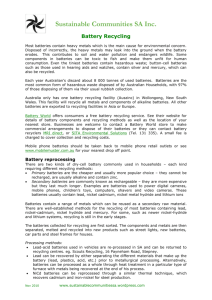Enviro 20 Case Study New Life for Dead Batteries
advertisement
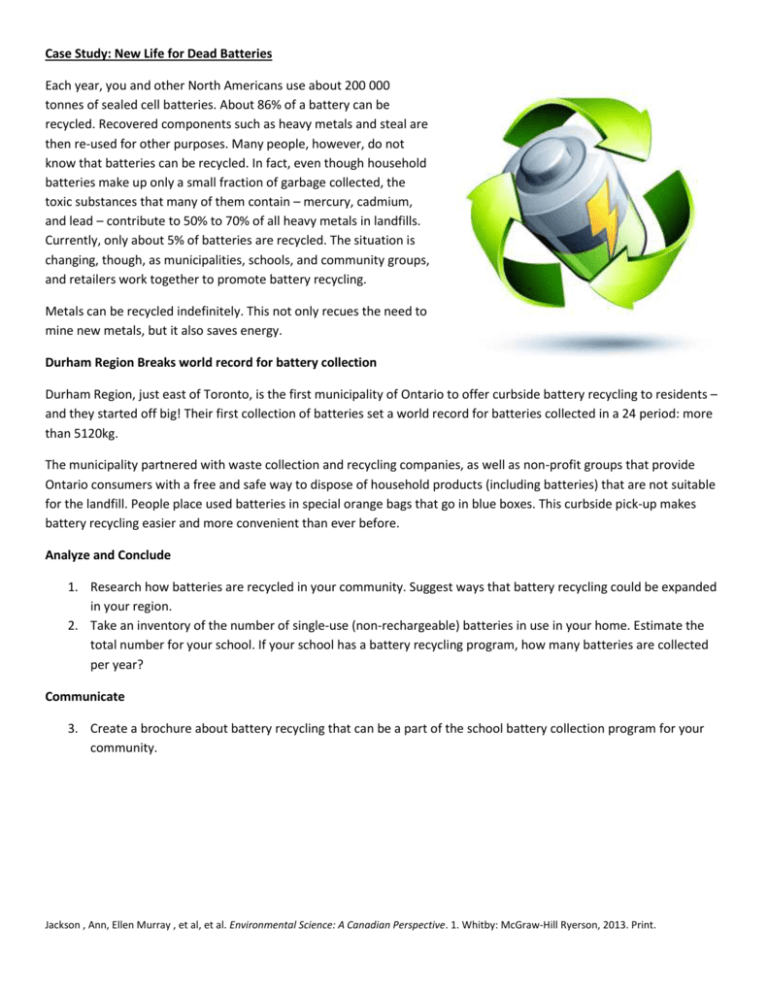
Case Study: New Life for Dead Batteries Each year, you and other North Americans use about 200 000 tonnes of sealed cell batteries. About 86% of a battery can be recycled. Recovered components such as heavy metals and steal are then re-used for other purposes. Many people, however, do not know that batteries can be recycled. In fact, even though household batteries make up only a small fraction of garbage collected, the toxic substances that many of them contain – mercury, cadmium, and lead – contribute to 50% to 70% of all heavy metals in landfills. Currently, only about 5% of batteries are recycled. The situation is changing, though, as municipalities, schools, and community groups, and retailers work together to promote battery recycling. Metals can be recycled indefinitely. This not only recues the need to mine new metals, but it also saves energy. Durham Region Breaks world record for battery collection Durham Region, just east of Toronto, is the first municipality of Ontario to offer curbside battery recycling to residents – and they started off big! Their first collection of batteries set a world record for batteries collected in a 24 period: more than 5120kg. The municipality partnered with waste collection and recycling companies, as well as non-profit groups that provide Ontario consumers with a free and safe way to dispose of household products (including batteries) that are not suitable for the landfill. People place used batteries in special orange bags that go in blue boxes. This curbside pick-up makes battery recycling easier and more convenient than ever before. Analyze and Conclude 1. Research how batteries are recycled in your community. Suggest ways that battery recycling could be expanded in your region. 2. Take an inventory of the number of single-use (non-rechargeable) batteries in use in your home. Estimate the total number for your school. If your school has a battery recycling program, how many batteries are collected per year? Communicate 3. Create a brochure about battery recycling that can be a part of the school battery collection program for your community. Jackson , Ann, Ellen Murray , et al, et al. Environmental Science: A Canadian Perspective. 1. Whitby: McGraw-Hill Ryerson, 2013. Print.
